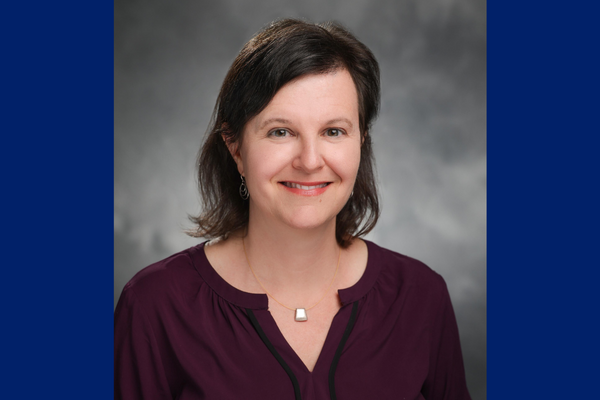
“I’ve learned a lot about mentoring from people in the lab. Creating a detailed lab expectations document is an important piece of mentoring because it shares with them our lab values and expectations. It’s a living document, so it can be updated as needed and built through conversations with people in the lab. It has helped me self-reflect on what is important to me and my mentees and figure out how we can have the best mentoring relationships.” — Debby Silver, PhD, professor of molecular genetics and microbiology
Thinking back, tell me about a time when a mentor had a big impact on you. What did you learn and how did it shape you?
My graduate advisor, Denise Montell, really inspired me to do rigorous and creative science that asked challenging questions. We would have these unexpected discoveries in the lab, which some scientists might say, “I don’t understand this, so I’m going to ignore it and move on to something easier to study.” But she really inspired me to think about those questions as opportunities to move the field forward in new ways and have the vision and courage to tackle that.
Now, I try to do that with our research. I encourage people in my lab to focus on the questions that will be impactful, to be very observational with their work, and to be open to surprises. I give them time to be uncomfortable with the data.
Tell me about a rewarding experience you have had as a mentor.
I’ve been fortunate to have had many of these! What is especially rewarding is getting to see people grow, especially graduate students. I have had students who have joined my lab without any prior experience in the model systems we’re using or even in developmental neurobiology. Being able to watch them grow to not just be competent but also to be experts in their own subfield and communicate that expertise to others through both papers and mentoring others has been incredibly rewarding.
Why do you make time for mentoring in addition to conducting research and everything else you have to do?
When I was contemplating what I wanted to do with my life, I thought about teaching, and I like teaching, but over my career, I’ve realized that what I really like about teaching is the back and forth and helping people maximize their own potential. Our research certainly benefits when people have better mentoring, but people in my lab are a part of a team that work together and learn from each other.
How do you approach mentoring of students and/or faculty? How do you work it into your days?
My mentoring roles have different layers from students to junior faculty. I am the program director for the Developmental and Stem Cell Biology PhD Program. So, I interact with all students as needed and have regular mentoring for first- and second-year students as they begin their journey into graduate school. With the folks in my lab ranging from technicians to staff to PhD students and postdocs, I have weekly or bi-weekly one-on-one meetings to talk about their progress and help agree upon goals for the next steps, and I really encourage people to think deeply about their own research.
Every year I do an individualized development plan (IDP). Every mentoring experience is unique, so the IDPs help tailor plans for each person’ needs and career goals.